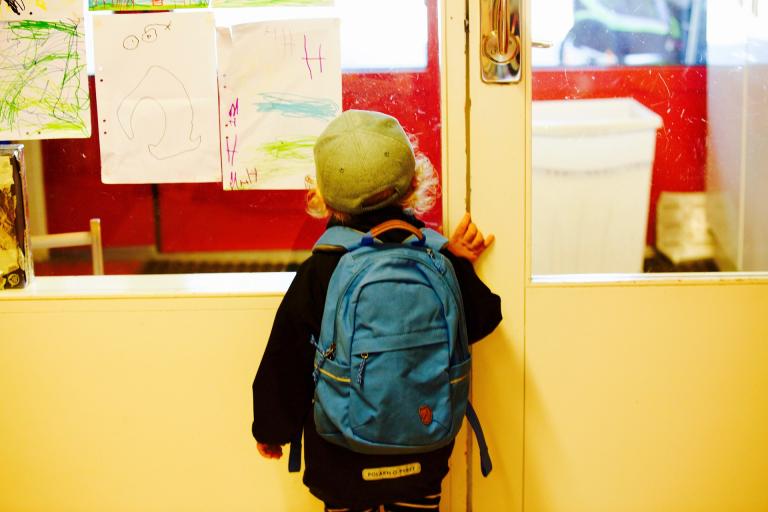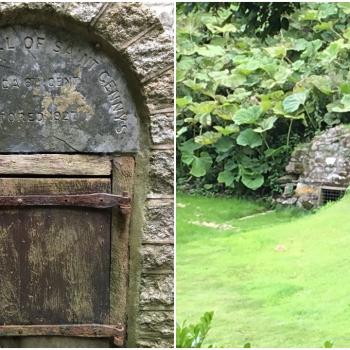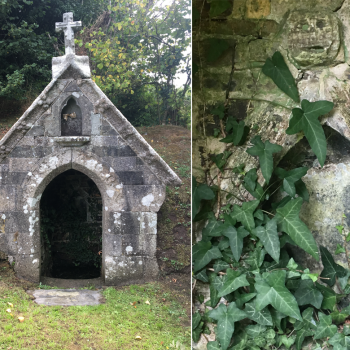In January I made an appeal for Pagans to speak out against UK government proposals to give new schools added powers to discriminate against pupils on the basis of faith.
To summarise, certain kinds of state-funded faith schools are allowed to prioritise pupils of certain faiths over others. For example, if a child from a Catholic family and a child from a Pagan family both applied for a place at an oversubscribed Catholic school, the school has the right to turn away the Pagans’ child in favour of the Catholics’ one – even if the Pagan family lives much closer to the school, or if there are other good reasons for the child of the Pagan family to attend the school (for example, the child’s best friend might attend the school).
Most new schools that open in England these days are a type of academy known as a “free school”. Free schools with a religious character are only allowed to select up to 50% of their pupils on the basis of faith; for the remaining 50%, faith must not be a factor in any selection criteria. However, under pressure from the Catholic Church and other religious groups, the government had planned to scrap this admissions cap, allowing for new free schools that could select 100% of their pupils on the basis of their family’s religion. In addition to families of no religion, Pagans and other members of minority religions would be particularly affected because they do not have their own faith schools.
The Good News (And Some Bad News)
Following these announcements, there was a massive outcry. Politicians, campaign groups, religious groups and members of the public spoke out against these plans, signing petitions, responding to consultations and writing to their MPs. Most people could see that allowing faith schools to become even more discriminatory would be unfair and would contribute to segregation and inequality in our communities.
And it worked. Last month, the government announced a U-turn on its decision. The 50% admissions cap on free schools would remain.
But this turned out to be a qualified victory. In order to appease the Catholic Church, the government has promised that it will provide religious groups assistance in setting up new voluntary aided schools.
Voluntary aided (VA) schools are quite different from free schools. They are still state-funded; the local authority funds 100% of the school running costs and 90% of the building costs. A religious group contributes 10% towards building costs. By contributing a small amount towards the building costs, the school gets the freedom to select 100% of its pupils based on faith.
So what’s happened is that the government has just given religious groups a different route to opening discriminatory schools.
But we should still view this as a success, even if it is qualified. It is more difficult to open a VA school than a free school, so chances are we will see fewer schools with no admissions cap open than we would have had the plans to scrap the admissions cap for free schools gone ahead. In fact, if it turns out there is considerable opposition to new VA schools opening at the local level, they might not even open at all. The No More Faith Schools campaign has published new guidance on how parents and others can challenge plans to open new faith schools in their area.
The Fight For Inclusive Education Continues
Those who helped in the campaign against discriminatory free schools should celebrate the fact that they managed to overturn government plans. But we should still remember that problems of religious discrimination in UK state schools are far from being solved.
Even faith schools that do not actively discriminate against children of the ‘wrong’ faith or no faith in admissions still disadvantage pupils in other ways. The very concept of a school that promotes a specific religious ideology is discriminatory in itself. It means that any child who attends a faith school whose family is not of the faith will always be a ‘second class’ pupil.
And let’s not forget that faith schools are allowed to teach their own version of ‘sex education’. Recent studies found that many state-funded faith schools explicitly teach that sex outside of marriage, contraception, abortion, same-sex relationships and masturbation are morally wrong. This would be unthinkable in a non-denominational school.
If schools are funded by tax payers, it should be a democratic right that those schools are genuinely inclusive and welcoming to children from all faith backgrounds and no faith. In other words, all state-funded schools should be secular, religiously-neutral environments, just as they must be politically-neutral. This is obvious to most people in constitutionally secular democracies like Japan, France and the US.
But in the UK, where religion is deeply entrenched in the state, this is still considered by many to be a radical idea. To some extent there is a systemic bias against non-faith schools; research earlier this year revealed faith-based provision is treated preferentially during school reorganisations. Just two weeks ago, the National Secular Society reported that parents, including Pagan parents, have been forced to take to the streets to protest their secular school being effectively converted into a faith school.
As the UK continues to grow less religious and more religiously-diverse, making all state schools religiously-neutral spaces will become a greater and greater need. I for one hope that the day will come soon when children from Pagan families, Christian familes, Muslim familes, Atheist families and families of all other religions and beliefs will be guaranteed the chance to study and play side-by-side in the same school, without any religious interference.

















